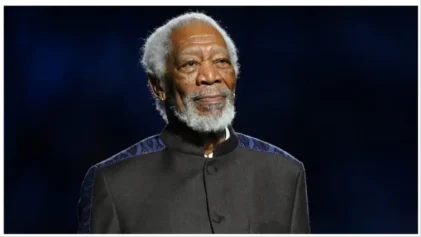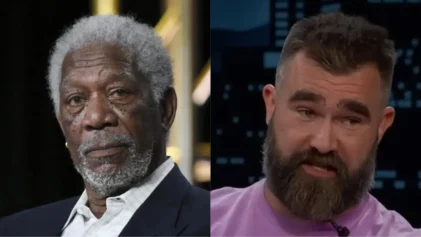There are a few famous actors whose voices are so undeniably legendary that it may be hard to compare.
A Twitter user sparked a debate about whether Morgan Freeman or James Earl Jones has the best voice. “Between James Earl Jones and Morgan Freeman, its hard to choose who has the most iconic voice. Its Mufasa vs. Lucius Fox,” they wrote.
Other Twitter users responded with their votes. One person said, “Only one is the voice of God. Just sayin,” referring to Morgan Freeman, who played God in both “Bruce Almighty” in 2003 and “Evan Almighty” in 2007. There was also a fan who recalled Freeman narrating rapper 21 Savage’s album “Savage Mode II.” This was one of the things that had people hype about the album from the first listen.
Fans who counted James Earl Jones as the winner named movies where he played the most iconic villainous roles as well as the most beloved. One fan thought back in their memory vault and reminded others that Jones played Thulsa Doom, who was the villain in the 1982 film “Conan the Barbarian.” That person said, “I’m sorry but when you’re Thulsa Doom, you win instantly.”
“Morgan freeman is awesome and iconic and if it’s for a narrator role then I choose him, but James earl jones just makes his characters have a presence, especially Vader, so him,” said another.
Jones has also played another famous villain role in the original “Star Wars.” This role was Darth Vader. On the flip side, the 90-year-old played Mufasa, also known as Simba’s slain father in the movie “The Lion King.”
In an interview for the 2011 film “Dolphin Tale,” Morgan Freeman gave some tips on how one can achieve getting a deeper voice. He told the interviewer, “If you’re looking to improve the sound of your voice yawn a lot.” Continuing to explain he said, “it relaxes your throat muscles, it relaxes your vocal cords, and as soon as they relax the tone drops. The lower your voice is the better you sound.”
One fun fact about Jones is he was not always so confident in his voice. As a child growing up with his grandparents in Mississippi, he had a stutter and said in a 2014 NPR interview that the issue was so bad that “I didn’t want to talk — bad enough that I just gave up.” He added, “I couldn’t introduce myself to people who visited the house, and it was too painful.”
Even after getting involved with theatre and on-screen acting, Jones said the stutter never really went away. “I just work with it,” he simply said.

